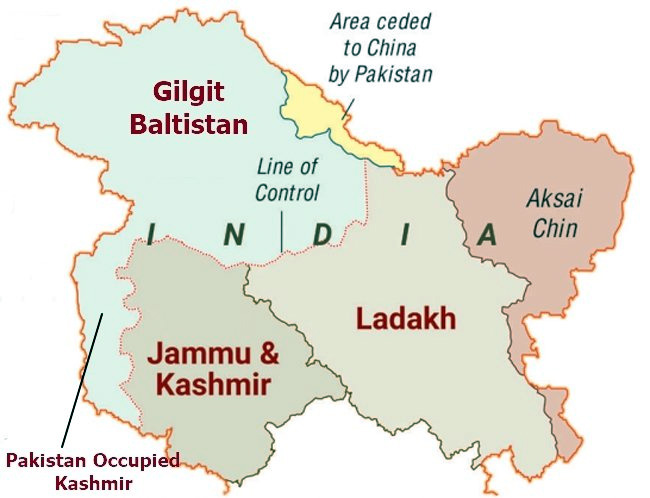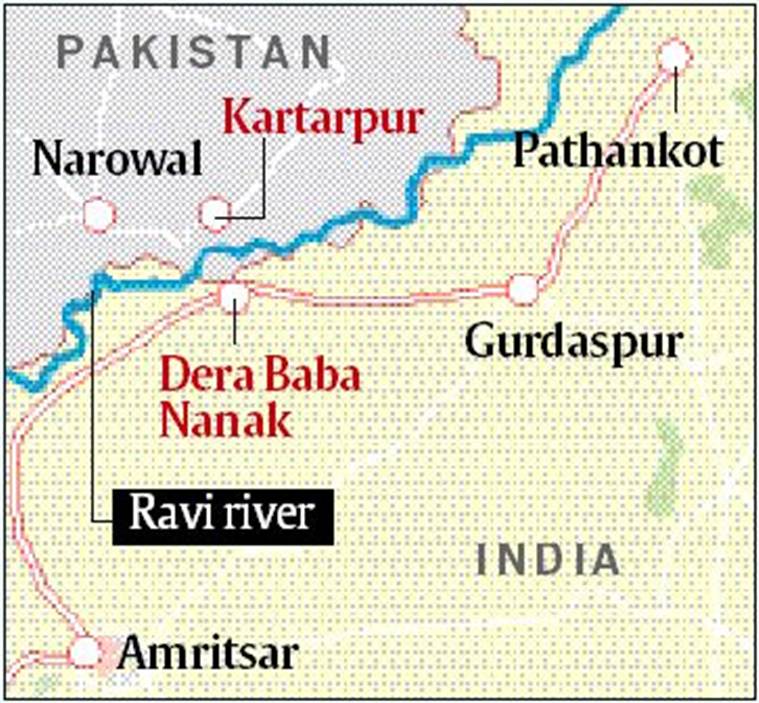BACKGROUND OF MODERN CONCEPTS OF INTERNATIONAL RELATIONS (5:10 PM):
- The Treaty of Westphalia signed in 1648, created the framework for modern international relations.
- The concepts of state sovereignty, nation-state, diplomacy, etc. all find their origins in the text of this treaty.
Economical determinant of Foreign Policy:
- Foreign policy is formulated to achieve the economic goals of the country.
- The biggest example was the new economic policy in 1992.
- Not only India came out of the Hindu Growth Rate, but India went on the path to becoming a global power.
- India emerged as an unquestioned regional hegemon with its role in the partition of Pakistan and the creation of an independent Bangladesh.
- However, India could not climb the ladder of the global power hierarchy with regular and substantive GDP growth rates.
| After USSR collapsed, much of the Soviet nuclear warheads were with Ukraine which Ukraine chose to surrender to Russia. Had Ukraine not taken this step, the present conflict would have been very different. |
Military determinant of foreign policy:
- It was post-operation Shakti that India became a de facto Nuclear Weapon State( NWS).
- It is only after it, India emerged as an important global power and India could enter into a strategic partnership with the USA.
- Today, the defense has emerged as the primary pillar of cooperation in India- USA ties.
Historical determinant of Foreign Policy:
- India's history of colonialism makes it an ardent( strong) supporter of anti-colonial movements in Africa and Asia.
- India-Pakistan relations continue to be impacted by the bitter history of partition.
- So much so that we are at times referred to as brother enemies.
India & the neighborhood:
- Good relations among neighboring countries are important because:
- I. Peace & Security.
- II. To promote trade & commerce.
- III. To check the role of external powers in the region.
- IV. To sustain India's claim to the permanent seat of UNSC.
Some important statements in this context:
- Atal Bihari Vajpayee- ' One can choose one's friends but neighbors have to live together'.
- Dr. Manmohan Singh- ' The real test of a country's foreign policy is handling of its neighborhood.
- Narendra Modi- 'A nation's destiny is linked to its neighborhood'.
GUJARAL'S DOCTRINE (5:30 PM):
- It emphasizes the principle of non-reciprocity.
- India will do whatever it can in good faith for the neighboring countries without expecting equal factors from them.
- India would desist from emphasizing the transactional nature of relations.
- The only requirement is that the neighboring countries (except Pakistan) should not allow the misuse of their territory against India or other South Asian countries.
- It is a set of five principles that combines the principle of reciprocity with the five Pancsheel principles.
|
Panchsheel: They are the five principles of peaceful coexistence to govern relations between states, first used in respect of China. They include:
|
Relevance of Gujaral Doctrine:
- It would help in checking the big-power small-power syndrome.
- The syndrome arises due to the huge size asymmetry -in terms of geography, population, Economics & Military between India and its neighbors.
- As a consequence of which, the neighboring countries remain suspicious of Indian actions.
- The doctrine will help in countering the Indian image of a bullying big brother.
- It would limit the scope of growing Chinese influence in the region.
- it would strengthen the Indian claim as a regional and consequently global superpower.
Neighbourhood First Policy:
- It was adopted in 2014 by the Modi government.
- It has four tenets:
- I. Diplomatic & Political priority will be extended to the neighboring countries.
- II. To provide in terms of resources for their development.
- III. To facilitate connectivity to allow the free flow of goods, services, investments, and ideas.
- IV. To promote a model of India-led regionalism with which the neighboring countries are comfortable.
- The policy implementation could be seen indirectly through many steps like inviting leaders of SAARC nations for the 2014 swearing-in and inviting BIMSTEC leaders for the 2019 swearing-in.
INDIA-PAKISTAN RELATIONS (6:00 PM):
- Probable questions:
- I.Comment on the India-Pakistan conundrum. How can India manage its relations with Pakistan?
- II. Though the Indus Water Treaty is the most successful river-water treaty in the world, India has given a call for its revision. Discuss the reasons for the same.
- III. Examine the use of terrorism as a tool of foreign policy by Pakistan. Analyze its ramifications for Islamabad.
Introduction:
- India and Pakistan are referred to as brother enemies.
- They have fought three full-fledged wars and one limited war.
- The 1948 war concluded with Karachi Agreement- the UN drew the Ceasefire line between India and Pakistan.
- The 1965 war concluded with Tashkent Agreement.
- The 1971 war concluded with Shimla Agreement.
- The 1999 Kargil War was a limited war.
1971 war:
- India did not initiate the war as the war was caused due to the internal situations between East Pakistan and West Pakistan.
- India was forced to intervene after India faced an influx of around 10 million refugees.
- The war was one of the quickest and most decisive wars in modern history.
- Within a few weeks of Indian participation, India won with more than 80,000 prisoners of war and Bangladesh was created.
- The magnitude of loss made Pakistan realize that they could not match India in a conventional war.
- Pakistan then started to focus on limited conflicts, border incursions, terrorism, etc. which is overall referred to as Bleeding India with a Thousand Cuts.
- Pakistan started to get nuclear weapons to decrease the power difference and gain strategic parity with India.
- Hence, the 1971 defeat was a watershed movement in Pakistani defense and foreign policy.
Shimla Agreement 1972:
- The Ceasefire line (Karachi Agreement was renamed as the Line of Control.
-

- Bilateral disputes were to be resolved through bilateral mechanisms without any third-party involvement.
India-Pakistan relations conundrum:
- India's intractable rivalry with Islamabad is India's Islamabad Conundrum.
- Despite every Indian PM personally paying high attention to India-Pakistan relations, the relations have followed a Dialogue-Disruption-Dialogue cycle.
- Whenever a government in India pursues dialogue for the normalization of India-Pakistan relations, such a dialogue is disrupted by either war or a terrorist attack.
Reasons:
- There is a presence of vested interests against the normalization of India-Pakistan relations.
- The vested interests include:
- I. Deep State:
- The reason for such power of the Pakistani army lies in bitter India-Pakistan relations.
- II. Jihadi Elements:
- Their Raison De Atre (reason for existence) lies in conflict with India.
Evidences of Dialogue-Disruption-Dialogue Cycle:
- Example 1:
- India and Pakistan became de-facto nuclear states in 1998.
- The Lahore Bus Diplomacy took place in 1999 when the then-Indian Prime Minister Atal Bihari Vajpayee traveled from Delhi to Lahore.
- It resulted in Lahore Declaration and we got the statement-
- The peace was disrupted by the Kargil War/Misadventure.
- Both India and Pakistan were juvenile nuclear powers and still Pakistan chose to go for nuclear brinksmanship.
- Pakistan took the risk of self-destruction, just to test Indian resolve and Indian capacity to retaliate.
Example 2:
- Agra Summit 2001- Pakistan accepted terrorism as a bilateral issue.
- The momentum was derailed in October 2001- An attack on Srinagar Assembly and later in December 2001- An attack on the Indian Parliament.
Example 3:
- India-Pakistan began the composite dialogue in 2004 under the 2+6 framework.
- The framework included discussing 2 major issues( Terrorism by India and Kashmir by Pakistan) and discussing 6 minor issues(low-hanging fruits).
- The six issues included Sir Creek, Siachin Glacier, Wular Lake (source of Jhelum), etc.
-
-

- The progress was disrupted by the 26/11 terrorist attacks in Mumbai in 2008.
Example 4:
- Pakistani PM was invited along with other SAARC leaders for the swearing-in ceremony of the newly formed Council of Ministers.
- 2015- Cricket Diplomacy, Surprise Visit to Lahore.
- The enthusiasm ended after attacks on Indian military bases- Gurdaspur(2015), Pathankot(January 2016), and Uri (September 2016).
- After the Indian realist response, Pakistan retaliated with the Pulwama attack(February 2019).
- After the Uri attack, India conducted a publicized surgical strike.
- After the Pulwama attack, India conducted an air strike inside Pakistani territory.
- The action was referred to by India as Non-military Pre-Emptive & Retaliatory Airstrike aimed at Jaish-E-Mohhamd installations.
- After the abrogation of Article 370 and the bifurcation of Jammu & Kashmir into two Union Territories, India-Pakisatn relations are believed to have entered a state of deep freeze.
FEATURES OF THE DEEP-FREEZE PERIOD (7:10 PM):
- High-level political exchanges were suspended.
- The 2015 Lahore visit by PM Modi is the last high-level bilateral interaction between the two countries.
- Trade was suspended.
- India withdrew from Most Favored Nation (MFN) status after the Pulwama attack while Pakistan imposed prohibitive taxes to discourage imports from India.
- Diplomatic missions were downgraded, the respective high commissioners were recalled and the mission strength was reduced to half.
- Cultural and sports exchanges were canceled.
- The opening of the Kartarpur Corridor was an exception.
-

- Severe LOC cross-border firings.
The current state of bilateral relations:
- The relations are in a state of cold peace.
- Since the two countries renewed the LOC ceasefire agreement in February 2021.
- The backchannel NSA-level dialogues are believed to be a reason for some renewal of dialogue.
FEATURES OF THIS COLD PEACE (7:35 PM):
- Minimal bilateral contacts.
- Bilateral contacts are bilateral, tactical, and clinical.
- The contacts are limited to urgent bilateral issues which need immediate action.
- there is no political will for any grand relationship gesture and any political outreach by two countries.
Why the cold peace?:
- We realize the fact that no bilateral issue has been resolved after the 1960s.
- The last major resolved issue was Indus river-water sharing.
- so there is no incentive to put in diplomatic efforts.
- India now believes in deterrence by punishment.
- Pakistan claims to have developed tactical nuclear weapons- nuclear weapons which can be used in actual wartime and cause localized damage.
- India has focussed more on developing strategic nuclear weapons- which can cause large-scale damage aimed at totally destroying the enemy.
- India has wanted to pursue/launch a conventional attack in case of a sub-conventional attack by Pakistan- terrorist attacks.
- India was stopped from pursuing the same because of fear of Pakistan resorting to the use of tactical nuclear weapons.
- India fears that any such conventional response by India could spiral into a nuclear war between the two countries.
- Especially since Pakistan is an irrational actor.
- However, the Balakot air strike is thought to have called out Pakistan's nuclear bluff.
- Both face different geo-political issues.
- India is engaged with border issues with China.
- Pakistan is tackling severe economic issues.
- Pakistan is also facing several terrorist attacks from terrorist groups like Tehreek E Taliban Pakistan(TTP), ISIS-Khorasan, etc.
- TTP has been emboldened by the Taliban reoccupying Kabul.
Why Pakistan cannot be totally insulated from the world ?:
- Pakistan is referred to as a Pivot state/ or a very important state in international politics due to its location.
- It shares a very long border with Afghanistan, due to which the USA chose Pakistan as its partner in its war on terrorism.
- This was despite the fact that it was well known that the Pakistani deep state favors the Taliban.
- Pakistan also has good relations with China- the emerging superpower.
- Russia considers Pakistan as a zipper state- that connects Asia and Europe.
- Pakistan's importance was estimated to rise after the Taliban takeover of Afghanistan.
- Pakistan's diminished status is due to its economic turmoil.
Way Forward in India-Pakistan Relations ?:
- Build international pressure on Pakistan to stop sponsoring terrorism.
- Pakistani policy of selectively supporting and opposing is now becoming a serious domestic security issue for Pakistan.
- Internation pressure can be built by once again graylisting or even blacklisting Pakistan under the Financial Action Task Force.
- India should pursue the adoption of the CCIT- Comprehensive Convention on International Terrorism by the UNO.
- India should cooperate with other countries to get international terrorists and terrorist organizations listed under the UN terrorist lists.
- It is unlikely that Pakistan is going to act strongly against the terrorist actors anytime soon.
- Therefore is it essential that India continues to develop counter-terrorism capabilities and consequent deterrence.
- India should develop good relations with countries that have leverage with Pakistan- Saudi Arabia, UAE, etc.
- India has traditionally been reluctant in dealing with the Pakistani military.
- India has recently opened challenges of communications with Rawalpindi( Pakistan Military Headquarters).
- Any agreement with it would have larger credence.
- In fact, it was the backchannel negotiations between the NSA of the two countries and their interlocutors that ended the state of the deep freeze.
- Trying to increase International communities' stake in the Indian economy.
- It will act as a safeguard against such attacks on India.
- Pursue soft power in terms of sports and cultural exchanges.
- Emphasizing more on commonalities rather than differences between the two countries.
- The two countries have shared histories and overlapping cultures.
- Pakistan cannot win if the spirit of a multicultural India is protected and promoted.
The topics for the next class are issues between India and Pakistan and India-Afghanistan relations.




0 Comments